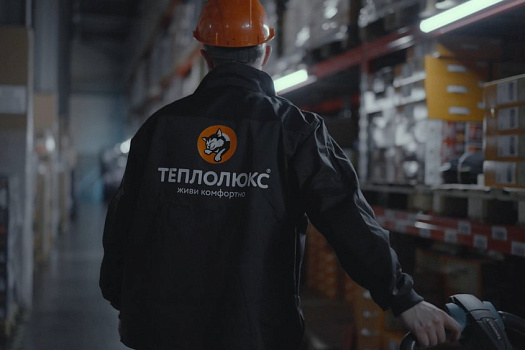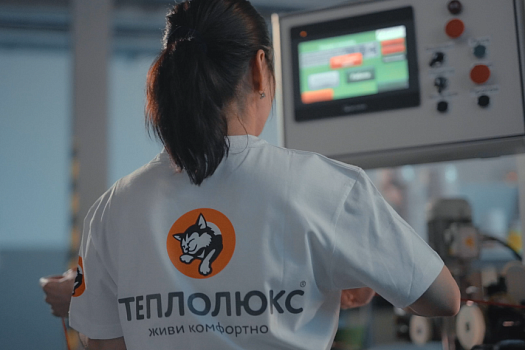About knowledge and curiosity
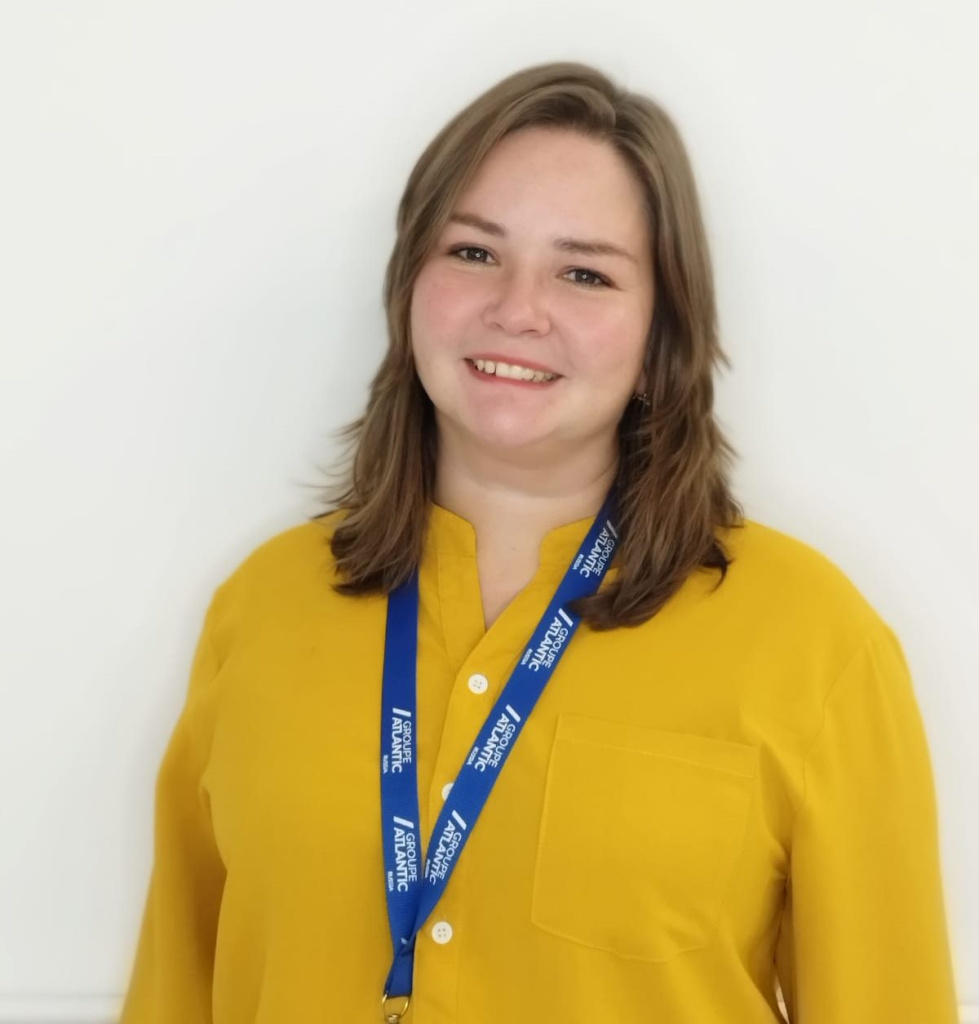 Tell us a little about yourself - position, how long you've been with the company, previous work experience and how long you've been in training.
Tell us a little about yourself - position, how long you've been with the company, previous work experience and how long you've been in training.
I have been with Groupe Atlantic for a year and a half, and in the Training & Development profession for more than 15 years. I consider myself very lucky with my profession - while working on training for various professions, I myself practically immerse myself in each of them: sales, production, purchasing, management and much more. What always remains constant in my profession is the correct “packaging” of knowledge in the appropriate format, the selection of the appropriate methodology for the careful transfer of expert knowledge into the minds of our employees.
Why is corporate training necessary?
There is such a joke in my profession: - Are you not afraid that you will train employees, and they will suddenly quit? - No I'm not afraid. I'm afraid they won't learn and stay.
Preserving and transferring knowledge, gaining new skills, quickly integrating newcomers - without these processes, it is extremely difficult for a company to develop.
Our mission is to help the employee to reveal his potential, to create conditions for acquiring and consolidating new knowledge and skills. A company develops only when its employees grow.
What are the global goals of the training project in our company?
I wouldn't call learning a "project". It is rather an ongoing process, which consists of both many projects and maintenance of processes - processing statistics, organizing training events and much more. The global goal is to ensure the continuous development of employees in the company and in the profession.
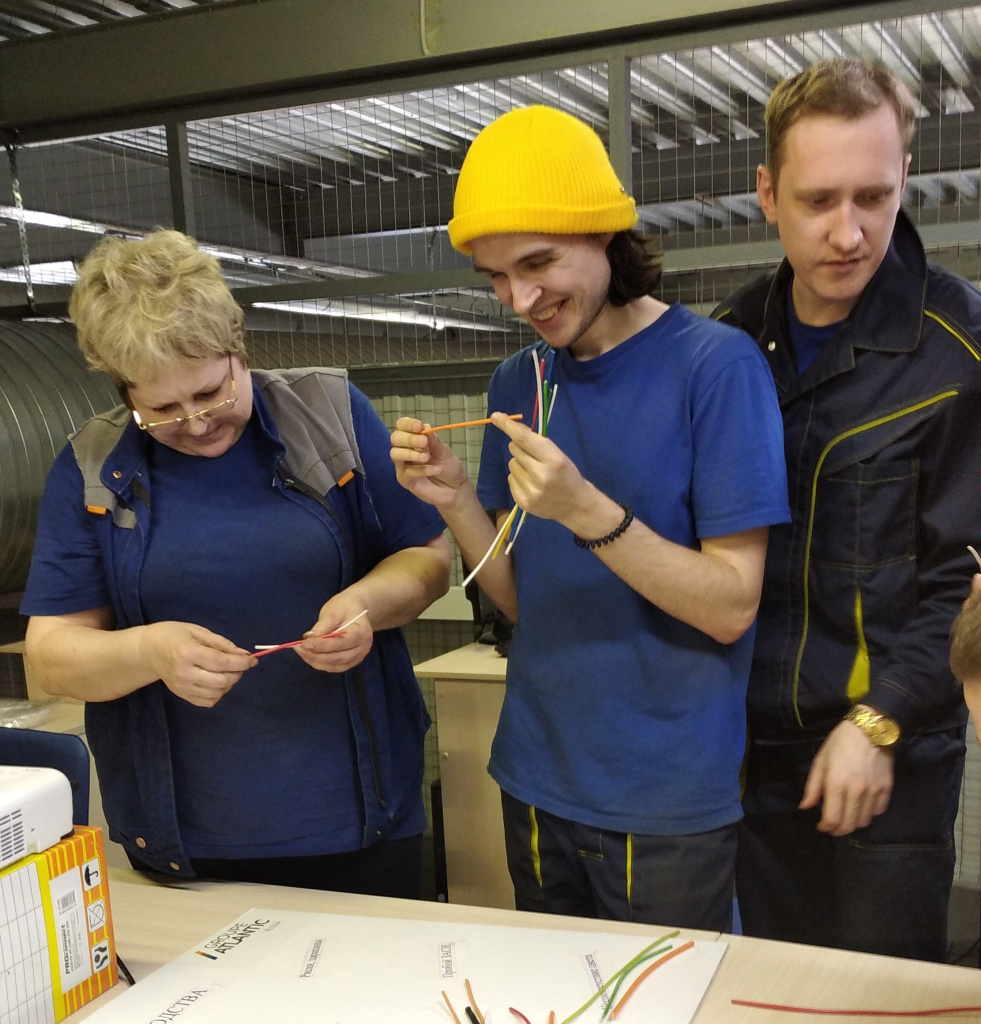
How does the training structure in the company look like now?
Groupe Atlantic, we distinguish five areas of education: Culture - learning about the culture of the Company, about our values, our products. Soft are programs that help develop so-called soft skills, such as the ability to negotiate, find optimal solutions, and manage emotions. Managers - those programs that help leaders manage teams. Hard is training for solving professional problems: working on equipment, knowledge of programs, legislation. We also have a special area of WeGA academy - training that helps us achieve our goals on the path to improving our processes.
In our company, you use online and offline learning formats, what is the difference between approaches and why are both directions needed?
In fact, there are many more formats of training than full-time and distance learning. We plan to gradually develop different approaches. Today's world is fast and diverse - we receive information instantly from various sources: e-books, social networks, videos, audio podcasts, advertising, professional communities. It will be right to use this diversity for development. Today, our employees study at trainings, share knowledge at workshops, and take electronic courses. Each format meets specific educational goals.
How is the effectiveness of employee training assessed? At what time distance can we measure the result?
For a very long time, training specialists have been puzzling over how to correctly calculate, measure and digitize the effectiveness of corporate training. There are many methods and approaches. The difficulty lies in separating the results that an employee has achieved in pure form through training from other factors. Our efficiency is influenced by many conditions: our knowledge, management, awareness, personality traits, business processes, and much more.
Our goal as a training center is to be sure that the employee will use the acquired knowledge in their work. To do this, you need to be very scrupulous in developing (or buying) a training program. We analyze and fix what result we plan to get from training, set goals, make sure that our request is solved precisely by new knowledge, and not by something else.
It is already easier to measure the effectiveness of a particular program. We use testing, we measure knowledge before training and after it. It is also possible to check how knowledge is learned and the employee is ready to apply it with the help of game situations, discussions, and training projects.
What landmark projects have been completed this year?
This year I am especially proud of our program for training mentors in the workplace. The goal was to explain the mentoring process to the participants and to support newcomers in their difficult mission of adapting to the company. We are also launching two programs from the Lean management cycle: “5S” has been actively working since this month, and “5 Whys” will be launched in the near future. For these programs, we used our internal expertise, developed an interesting program, and trained at the workplace.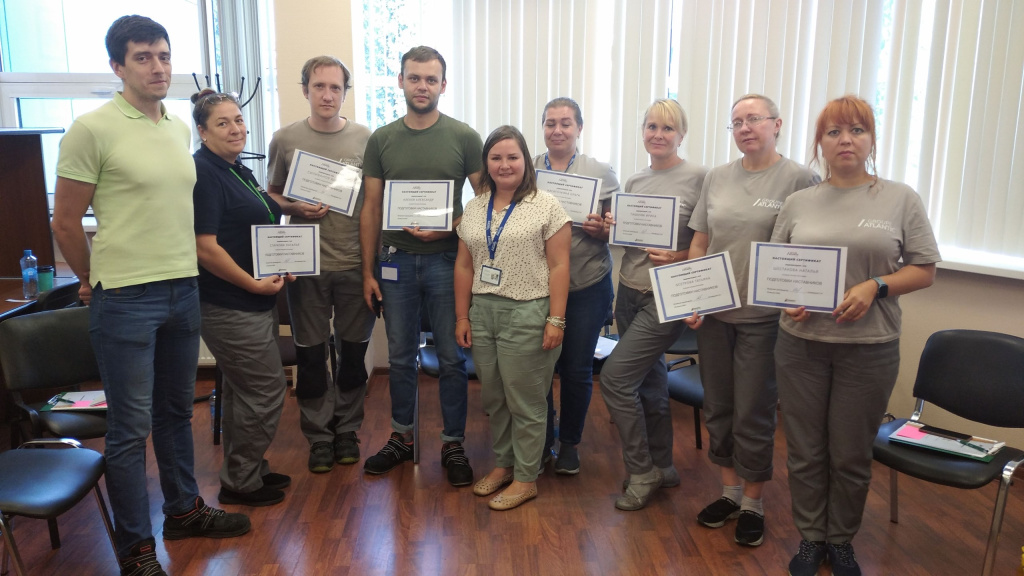
And in conclusion, we ask you to say a few words to our colleagues about how to competently build your learning process and what to pay attention to.
I remember one story from childhood, when one of my friends returned from a business trip from abroad and shared: imagine, our group was offered to learn English! They came and asked: “Who wants to learn how to speak English”? - Just a forest of hands. - Great! Who will come to class tomorrow? - and almost no one signed up ...
This situation is absolutely normal for us adults. We are constantly busy, we want the result quickly and immediately, we are embarrassed to seem incompetent. I would advise not to wait for the moment when “I’m about to start, I’ll definitely start on Monday,” but to learn new things in small portions and regularly. Everything around us has something to learn. Wondering how to make a presentation? Go to the museum to discover interesting combinations of colors and shapes, pay attention to commercials: what “hooked” you? What was your focus? Read feature articles. What bright wording did you find interesting? Observe the world consciously, take good ideas, use them in projects and find the best solutions.
Of course, I invite you to take a look at our learning portal: just 30 minutes and you will be inspired by an interesting method or gain new knowledge. Join professional communities in the industry and don't be afraid to be curious and ask questions.
By the way, Curiosity is one of the manifestations of the third principle of GROUPE ATLANTC - to maintain a broad outlook, initiative and enterprise. It is curiosity that underlies any development. Be curious, and we will support you in this.
